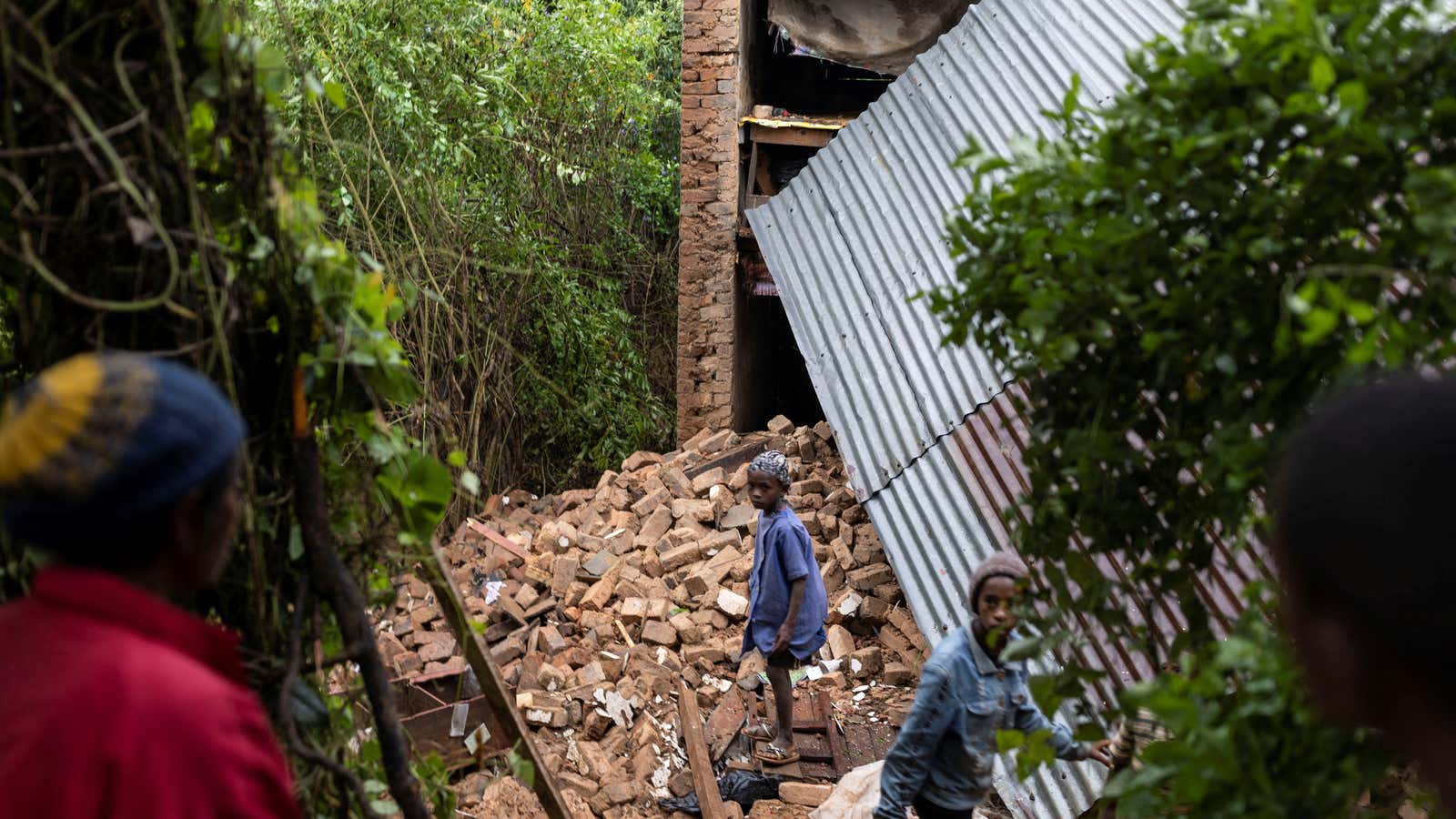Batsirai, a violent cyclone that formed in the Indian Ocean and hit a speed of 145 miles per hour, hit Madagascar, causing at least seven deaths and the displacement of 45,000 people. The storm destroyed homes and caused power outages on the island nation’s western coast, which is now bracing for floods. The World Food Program (WFP) warns that as many as 150,000 people might be forced to leave their homes in the cyclone’s aftermath.
This is the second time Madagascar was hit by a cyclone in as many weeks. On Jan. 25, cyclone Ana, which hit Malawi and Mozambique as well, caused 80 deaths, (including at least 42 in Madagascar, and displaced as many as 130,000 people.
The unusual pattern of catastrophic weather events hitting the same place so close together is linked to climate change. It also is an example of climate change’s inequality, in which the countries getting hit hardest generally are the ones that did the least to cause it.
Low emissions, high losses
Aside from the immediate destruction of homes and infrastructure, one of the more concerning outcomes of the cyclones are their impact on harvests. Damage caused by rain and floods will compound the effects of changing temperatures, which are associated with shortages of food production and rising prices. In Madagascar, where the per capita GDP is less than $500 a year, a third of the population struggles with food scarcity.
The country is also among the least responsible for carbon emissions per capita. But it will be poor countries, many of which already struggle with adverse weather conditions, that will bear the direst consequences as climate change worsens.
Among the crops that were damaged in the cyclones is the country’s most important: vanilla. Madagascar produces 80% of the world’s vanilla, and has seen a few years of economic growth following a rise in the value of the spice. But vanilla, an orchid vine growing on trees, takes three years to grow, so any damage sustained by the plantations will have prolonged effects on the economy. In 2017, when Madagascar was hit by Enawo, a cyclone similar in strength to Ana and Batsirai, 30% of the vanilla harvest was damaged.
The push for climate justice
The damage in Madagascar shows the urgency of the climate justice framework activists have been calling for, under which the countries with high emissions would have to provide reparations to those paying the consequences for them.
According to this idea, the international nonprofit Oxfam says the US, for instance, would owe $2 trillion to countries losing resources to climate change.
Sign up to the Quartz Africa Weekly Brief here for news and analysis on African business, tech, and innovation in your inbox.
